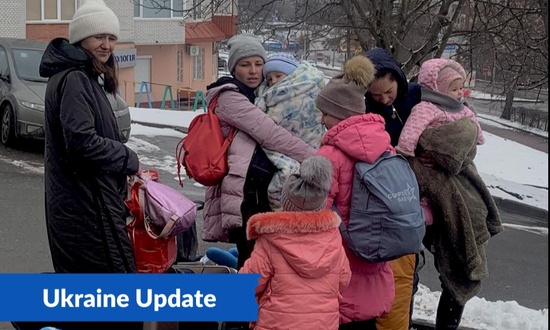My friend Doug Nichols is the founder of ACTION International, one of my favorite ministries in the world. If you’re wondering about a worthy missions work to support, I highly recommend ACTION. (Doug currently serves as global missions advocate and mobilizer for Commission to Every Nation.)
One of ACTION’s primary outreaches is to children in crisis around the world, which is something close to the heart of God. Jesus, who told His disciples, “Let the little children come to me,” proved His love for children by becoming one, eventually dying for each and every child.
Jesus also said, “Whatever you did for one of the least of these brothers of mine, you did for me. . . . Whatever you did not do for one of the least of these, you did not do for me” (Matthew 25:40, 45). Every Christian must ask, “What am I doing to uphold the cause of needy children?” Mere sentiment is not enough. I encourage you to read what Doug has to say about the great needs worldwide, then ask God how you can help make a difference in these children’s lives. —Randy Alcorn
We Must Care for Our Future—Our Children
by Doug Nichols
If only 20 spotted owls were dying every day, there would be an outrage. But 25,000 children die daily from starvation and disease, and it’s hardly noticed. Many of these are abandoned street children.
One hundred million extremely underprivileged and street children struggle for existence in today’s cities. One hundred million! Are these children trash? Local businessmen in Brazil call them “Vermin, garbage. If we let them grow up, they will be criminals, a blight on our society.”
Some of these children are young and cute. They can still smile. But most are older, have rotten teeth, are scar-faced, disease-ridden, flea- and lice-infested, shifty-eyed, suspicious, and fearful. They are the poor, the outcast, the abandoned, the exploited—the children of the streets.
How do they exist on the streets? They survive by begging, stealing, selling their bodies, and eating out of garbage cans.
The government of the Philippines estimates there are up to 100,000 children living on the streets of Manila. Fifteen thousand of these are child prostitutes between the ages of 9 and 12. In Thailand there are 800,000 prostitutes from 12 to 16 years of age.
In Sao Paulo, Brazil, another 800,000 children are living on the streets.
Estimates in Mexico City are over one million underprivileged children, with 240,000 living on the streets.
Children don’t ask for much.
A veteran children’s worker, with more than 30 years’ experience, asked Latin American street children what was the biggest wish of their entire lives:
- Ramon drooled over a vivid description of a sumptuous dinner.
- Ten-year-old Leila pleaded for the chance to go to school. She longed to read and write.
- Ricardo looked up from his shoe-shine box to whisper wearily that what he always wanted in his 12 years was a father.
- Maria’s aggressive retort was to be left alone from abuse and violence, and Nelson said that more than anything he wanted to play.
Their biggest wish? Not new cars, fancy houses, property, exotic vacations, the desire to be prosperous and famous. No, the biggest wishes of street children are for things many take for granted—home, good food, family, school, the chance to play and work, the freedom from fear and violence.
Really, they’re not asking much, are they?
As Christians, why is working with children, the smaller half of the world, so important?
- First, God said of the Ten Commandments, “Impress them on your children” (Deut. 6:7); therefore, working with children is central to obedience to God.
- Second, it is important because of the bulk of the world’s population is children.
- Third, children play important roles in society, positively as well as negatively.
There are an estimated 40 million children on the streets of Latin America. The majority of them are becoming a plague to society; but by working with these children with compassionate care, and especially the Gospel, we can help society as a whole.
What can you do?
- There is a need for hundreds of evangelical missionaries to work with needy street children worldwide. 200 could serve effectively just in Manila, Philippines, with street children and thousands more children in crisis!
- You as an individual can have a large impact on one, two, or more street children throughout the world. For example, if you set aside just 25 cents per day to assist street children, this would total $30 in four months, which is all it costs to send a child to a 1-2 day camp in in Brazil, Mexico, the Philippines, or Africa.
- Why not call an evangelical Christian organization today and volunteer to help the children on the streets of the world?




